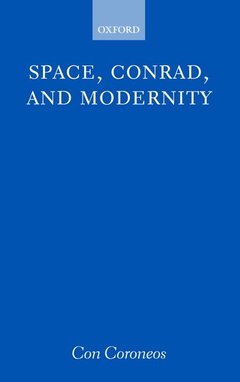Space, Conrad, and Modernity
Langue : Anglais
Auteur : Coroneos Con

Recent literary and cultural criticism has taken a spatial turn. Nowadays, to speak is to speak from, to, or in; to know something is to have 'mapped' its discursive operation. This book locates this development within the opposition between a space of things and a space of words, tracing various aspects of its emergence from the geopolitical idea of 'closed space' which developed in the early twentieth century to the influence of Saussurean linguistics in contemporary criticism and theory. The focus of the study is the work of Joseph Conrad, in whom the opposition between a space of words and a space of things is strikingly figured. Part I deals with several versions of closed space, using an ancient spatial paradox of God (as the sphere of which the centre is everywhere and the circumference is nowhere) to raise questions about the relations between geography, language, and interpretation. Part II deals with the agitation around finitude and the limit, and the desperate attempt to discover in the resources of language a means of liberation. Through these ideas the book explores some of the more disreputable, marginal, or unglimpsed elements in modernism - including the rise of spy fiction, anarchist geography, the spiritualist movement, the invention of artificial languages, the history of laughter, and solar energy. Among the figures drawn into dialogue with Conrad are John Buchan, Woolf, Joyce, Peter Kropotkin, René de Saussure (brother of the famous Ferdinand), Henri Bergson, the filmmakers George Méliès and Carol Reed and, in particular, Michel Foucault -- this 'nouvelle cartographe' as Gilles Deleuze described him -- whose anxious negotiation with spatial ideas touches the book's deepest understanding.
Introduction,. Part 1: Closed space.1: Such a cruel knowledge, 2: Hearless modernism, 3: The idiom of Idiom Neutral,. Part 2: Language to infinity.4: Mystical criticism, 5: Why Bergson laughs, 6: Do the police have dreams?, Conclusion, Bibliography, Index
Date de parution : 02-2002
Ouvrage de 208 p.
14.5x22.4 cm
© 2024 LAVOISIER S.A.S.



